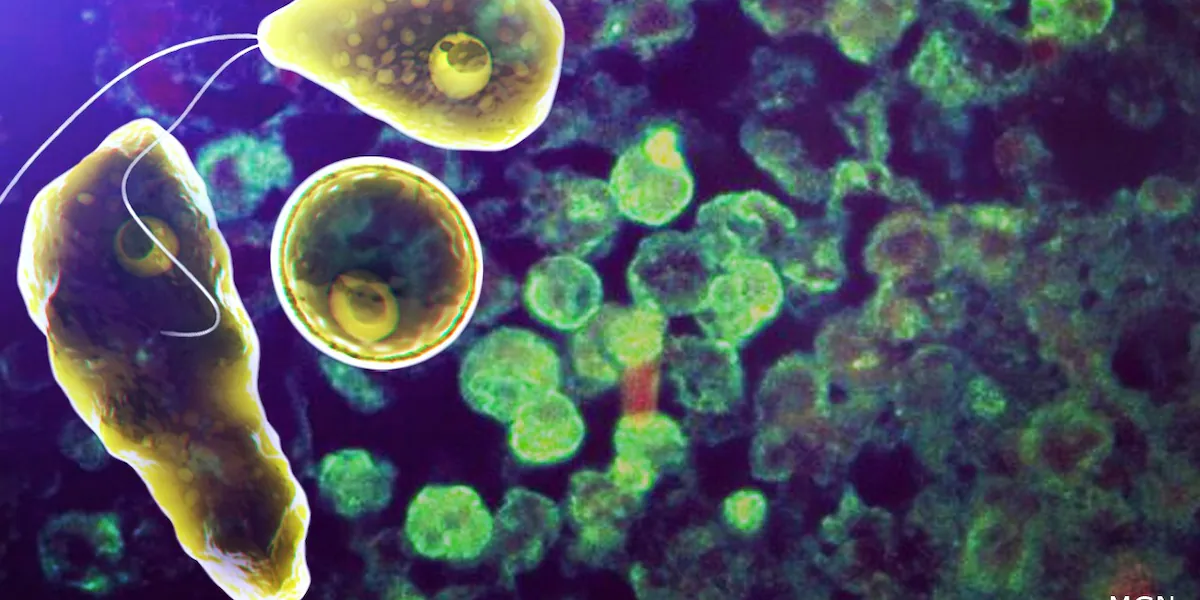
Department of Public Health confirms case of brain-eating amoeba in South Carolina
How did your country report this? Share your view in the comments.
Diverging Reports Breakdown
Department of Public Health confirms case of brain-eating amoeba in South Carolina
The South Carolina Department of Public Health confirmed a case of a brain-eating amoeba. The case was confirmed the week of July 7. There are less than 10 cases annually in the United States. While rare, Naegleria fowleri is nearly always fatal. This is a developing story. Stay tuned to WIS for the latest details on this developing story and for more updates on this story. The video above is a livestream of content from WIS and Gray Media’s Local News Live.
COLUMBIA, S.C. (WIS) – The South Carolina Department of Public Health (SCDPH) confirmed to WIS Monday evening that there is a case of a brain-eating amoeba in the state.
DPH said in a statement that the case was confirmed the week of July 7 but also said that the amoeba in question, Naegleria fowleri, is very common in freshwater lakes, rivers and ponds.
“The South Carolina Department of Public Health (DPH) was made aware of one case of Naegleria fowleri in our state the week of July 7. Naegleria fowleri is not required to be reported to DPH. The agency does not track infections from the amoeba and does not provide information about or comment on individual cases, including the person’s condition,” DPH said. “Recreational water users should assume that Naegleria fowleri is present in warm freshwater; however, the risk of infection is very low. There are less than 10 cases annually in the United States. While rare, Naegleria fowleri is nearly always fatal.
DPH would not confirm the exact location where the case occurred. Per state law, testing of the water for this specific amoeba is not mandatory, and South Carolina agencies are not required to issue an announcement when a case like this occurs.
WIS reached out to the CDC and environmental services as well for specific details but were unable to obtain confirmation of the location and any additional details.
This is a developing story. Stay tuned to WIS for the latest details.
Feel more informed, prepared, and connected with WIS. For more free content like this, subscribe to our email newsletter, and download our apps. Have feedback that can help us improve? Click here.
Copyright 2025 WIS. All rights reserved.
Department of Public Health confirms case of brain-eating amoeba in South Carolina
South Carolina Department of Public Health confirms case of brain-eating amoeba. Naegleria fowleri is very common in freshwater lakes, rivers, and ponds. Risk of infection is very low; there are fewer than 10 cases annually in the United States. While rare, Naeglersia f Fowleri is nearly always fatal and can kill in a matter of hours. The agency would not confirm the exact location of the case.
Fort Gordon soldier catches dirty deed in shocking video The 12 On Your Side investigators are asking questions after some troubling video showed up online.
DPH stated in a press release that the case was confirmed the week of July 7, but also noted that the amoeba in question, Naegleria fowleri, is very common in freshwater lakes, rivers, and ponds.
“The South Carolina Department of Public Health (DPH) was made aware of one case of Naegleria fowleri in our state the week of July 7. Naegleria fowleri is not required to be reported to DPH. The agency does not track infections from the amoeba and does not provide information about or comment on individual cases, including the person’s condition,” DPH said.
WATCH: Irmo cops release bodycam video in North Augustan’s death The Irmo Police Department on Monday released bodycam footage of the encounter that led up to the arrest and death of a North Augusta man who died in their custody.
Recreational water users should assume that Naegleria fowleri is present in warm freshwater; however, the risk of infection is very low. There are fewer than 10 cases annually in the United States. While rare, Naegleria fowleri is nearly always fatal.
DPH would not confirm the exact location where the case occurred. Per state law, testing of the water for this specific amoeba is not mandatory, and South Carolina agencies are not required to issue an announcement when a case like this occurs.
WIS reached out to the CDC and environmental services as well for specific details, but were unable to obtain confirmation of the location and any additional details.
Copyright 2025 WRDW/WAGT. All rights reserved.
